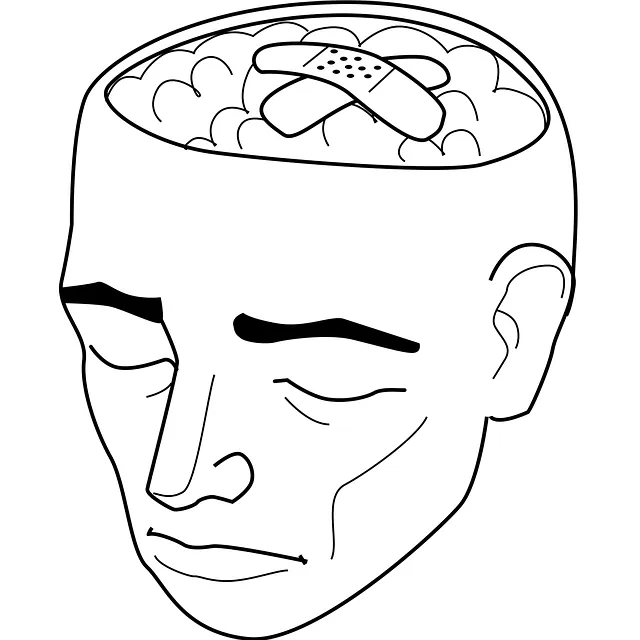Community outreach programs are vital for expanding access to mental health care, especially in areas without specialized centers like Kaiser Permanente. These initiatives bridge healthcare gaps by offering tailored support for diverse demographics through practical tools like conflict resolution and self-awareness exercises. Evaluating community needs is crucial, involving engagement with local leaders and residents to understand unique challenges. Effective programs include public awareness campaigns, accessible resources through workshops and peer support groups, and inclusive practices. Kaiser Permanente's Northglenn mental health center reviews highlight successful initiatives like Trauma Support Services and Conflict Resolution Techniques, improving mental wellness outcomes and fostering community engagement.
Community outreach programs play a vital role in enhancing mental health care, especially for at-risk populations. This article explores the impact of such initiatives, using Kaiser Permanente Northglenn as a case study—a hub renowned for its commitment to mental well-being. We guide healthcare organizations through evaluating community needs and designing effective outreach strategies. Additionally, we review Kaiser Permanente’s programs in Northglenn, highlighting successful engagement methods, as demonstrated by their mental health center reviews.
- Understanding Community Outreach: Its Role and Impact in Mental Health Care
- Kaiser Permanente Northglenn: A Hub for Mental Well-being
- Evaluating Community Needs: A Step-by-Step Guide for Healthcare Organizations
- Designing Effective Outreach Programs: Strategies for Engaging at-Risk Communities
- Measuring Success: Reviewing the Effectiveness of Kaiser Permanente's Mental Health Center Programs in Northglenn
Understanding Community Outreach: Its Role and Impact in Mental Health Care

Community outreach programs play a pivotal role in enhancing mental health care services, especially in areas like Northglenn where access to specialized centers like Kaiser Permanente mental health centers is crucial. These initiatives serve as a bridge between healthcare providers and underserved communities, fostering inclusive and accessible support for mental wellness. By implementing tailored programs, organizations can address unique challenges faced by different demographics.
For instance, conflict resolution techniques and self-awareness exercises can be integrated into outreach activities to empower individuals with coping strategies. Such interventions not only promote mental health but also encourage community engagement and build resilience against stressors. With consistent effort and a focus on holistic well-being, community outreach can significantly contribute to improving mental health outcomes as evidenced by positive Kaiser Permanente mental health center reviews in Northglenn.
Kaiser Permanente Northglenn: A Hub for Mental Well-being

Kaiser Permanente Northglenn stands as a beacon of hope and healing in the community, serving as a dedicated mental health center that offers comprehensive services. This healthcare facility has garnered positive reviews for its holistic approach to well-being, focusing not just on treating symptoms but empowering individuals with tools for lasting mental resilience. The center’s strategic location in Northglenn positions it as a central hub, accessible to those seeking support for their mental health journeys.
Beyond providing top-tier care, Kaiser Permanente Northglenn actively engages in initiatives aimed at burnout prevention among healthcare providers and promotes self-awareness exercises tailored for the unique challenges faced by mental health professionals. Through regular workshops and programs, they also facilitate risk management planning, ensuring a safe and supportive environment where both patients and practitioners can thrive.
Evaluating Community Needs: A Step-by-Step Guide for Healthcare Organizations

Evaluating Community Needs is a crucial step for healthcare organizations like Kaiser Permanente mental health centers in Northglenn aiming to implement effective outreach programs. This process involves listening to and understanding the unique challenges and aspirations of the community they serve. A step-by-step guide can help:
1. Community Engagement: Start by building relationships with local leaders, community organizations, and residents through meetings, surveys, or focus groups. Gaining insights into their priorities and concerns is vital.
2. Assess Mental Health Landscape: Identify existing mental health resources in the area using data from local authorities and community feedback. This step includes analyzing access to services, gaps in care, and prevalent mental health issues, like depression or anxiety, as evidenced by Kaiser Permanente mental health center reviews Northglenn.
3. Identify Target Groups: Define specific demographics within the community that may benefit most from outreach programs. These could be youth, seniors, or marginalized groups with unique needs, as highlighted in Mental Wellness Journaling Exercise Guidance and Self-Care Routine Development for Better Mental Health.
4. Develop Needs Assessment Tools: Create surveys or questionnaires tailored to gather data on mental health perceptions, barriers to care, and desired services. This information is key to shaping targeted interventions.
5. Analyze Findings and Prioritize: Compile and analyze the data to identify pressing needs and areas for improvement. Prioritize initiatives based on community input, ensuring programs like communication strategies are aligned with their expectations.
Designing Effective Outreach Programs: Strategies for Engaging at-Risk Communities

Designing effective outreach programs requires a deep understanding of the community’s unique needs and cultural context. At-risk communities often face barriers to accessing mental health services, making it crucial to implement tailored strategies. For instance, public awareness campaigns development focused on Mental Health Awareness can dispel myths and reduce stigma, encouraging individuals to seek help. Engaging trusted local leaders and organizations can facilitate these conversations and ensure the right messages reach the right people.
Taking inspiration from successful initiatives like those at Kaiser Permanente mental health centers in Northglenn, programs should aim to foster open dialogue and provide accessible resources. Incorporating interactive workshops, community events, and peer support groups can significantly enhance engagement. By prioritizing inclusive practices and addressing Anxiety Relief concerns, outreach efforts can effectively connect with individuals who may otherwise remain underserved, ultimately improving the overall well-being of the community.
Measuring Success: Reviewing the Effectiveness of Kaiser Permanente's Mental Health Center Programs in Northglenn

Evaluating the success of community outreach programs is paramount to understanding their impact and identifying areas for improvement. Take the case of Kaiser Permanente’s Mental Health Center in Northglenn, whose initiatives have garnered attention through patient reviews. These evaluations highlight the center’s effectiveness in providing essential services such as Trauma Support Services and Conflict Resolution Techniques. Positive feedback from participants underscores the center’s commitment to fostering mental wellness through tailored coaching programs.
Furthermore, the success of these programs can be measured through increased access to mental health resources in Northglenn. By offering innovative solutions like Conflict Resolution Techniques and Mental Wellness Coaching Programs Development, Kaiser Permanente has not only addressed immediate needs but also contributed to long-term improvements in community mental health. This holistic approach ensures that residents have the tools and support necessary to navigate life’s challenges more effectively.
Community outreach programs, as demonstrated by Kaiser Permanente’s initiatives in Northglenn, play a pivotal role in enhancing mental healthcare accessibility. By understanding local needs through comprehensive evaluation processes, healthcare organizations can design targeted programs that foster engagement with at-risk communities. The success of these efforts is measurable, allowing for continuous improvement and ensuring that resources are allocated effectively to address mental health challenges within specific regions, such as the Kaiser Permanente mental health center reviews highlight in Northglenn.






